From Curious Chaos to Representation in Robotics: Coralie Tcheune
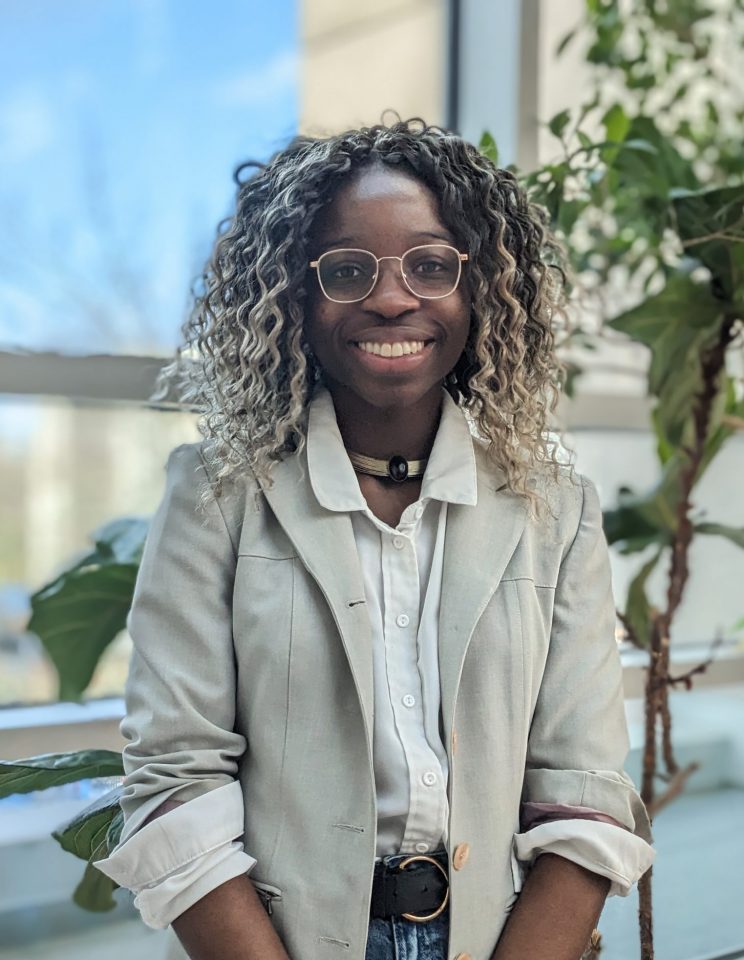
As a young child, Cansbridge Fellow and Biomedical Engineering student Coralie Tcheune looked up to 3 scientists: her mother (a Computer Science major), her father (who held a Master’s in Applied Mathematics), and Doc Brown (inventor extraordinaire from Back to the Future) blazed the trail for Coralie’s passion for STEM.
In particular, engineering has lured Coralie to its door time and time again. Her interest in engineering started at a young age, as do most children’s, through an organic curiosity about our world.
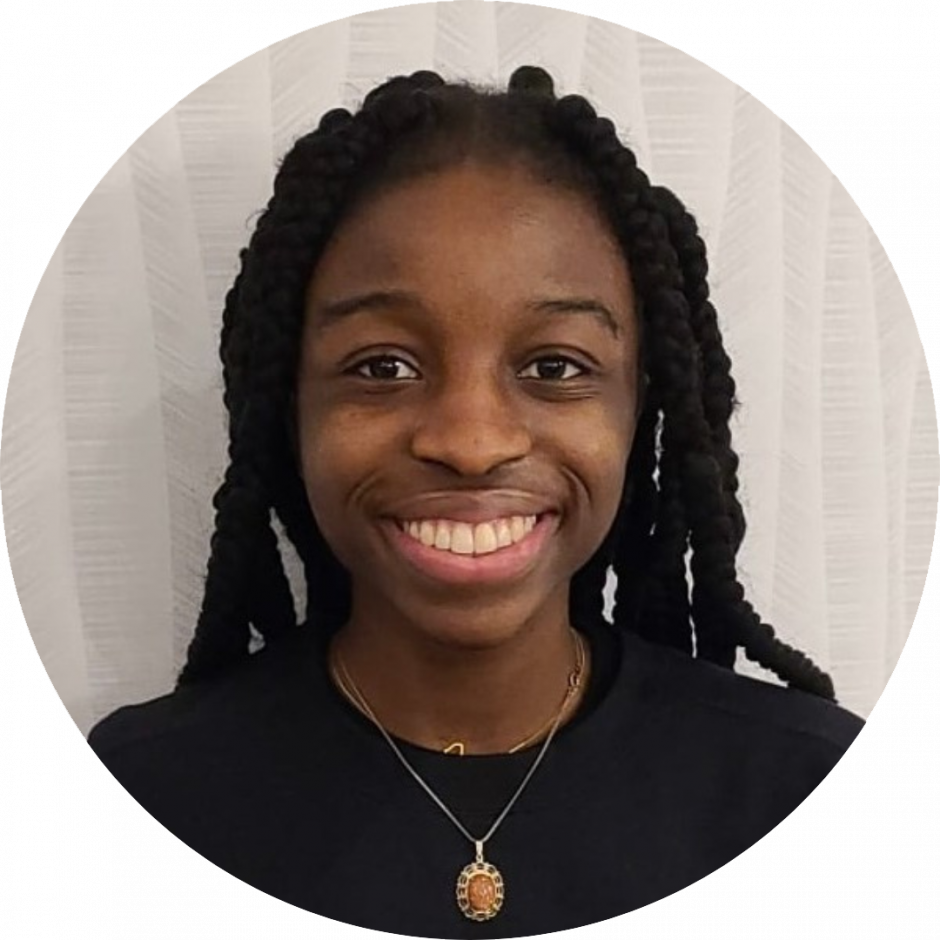
“I was a tiny menace,” Coralie jokes, “who would rip apart anything I could get my hands on to figure out how it worked.”
Her parents played a critical role in inspiring her to pursue engineering. Coralie’s mother earned a degree in STEM, which was virtually unheard of for women in Cameroon. Whenever she faces the challenges of being a black woman in engineering, Coralie can always turn to her mother, as she overcame her own harrowing barriers during her degree years ago. Coralie’s father always fed her curiosity about the sciences. As an Applied Mathematician, he taught her how to study the world with logic and was always one of her biggest cheerleaders in her pursuit of and participation in science-related activities.
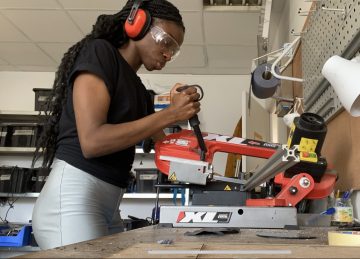
Photo courtesy of Coralie Tcheune
In grade school, Coralie gravitated towards math and sciences as a means of growing her earlier understanding of life’s complexities. However, despite these clear inclinations towards STEM, she didn’t discover her passion for biomedical engineering until a serious knee injury landed her in the operating room at the age of seventeen. The minute she was rolled through the hospital doors, her toddler-like mind took over; she wanted to understand how the MRI machines worked, how the metal bolts used in her surgery interfaced successfully with the human body, how it all worked.
As a toddler, Coralie would’ve been content tearing apart the hospital machines and tinkering with every component to satiate her curiosity. As a teenager, she tore into some books instead to keep her company during her recovery. Just a few weeks of research sold her on the bridge between engineering and medicine.
There was no going back. A whole new world opened up for Coralie. She was suddenly craving opportunities to work on devices (like prosthetics), gene editing, and brain-computer interfaces. Today, Coralie is finally content with her studies in biomedical engineering. Her most recent project centers around developing an experimental model for simulating and modulating knee pain in healthy individuals to analyze their musculoskeletal adaptation. This work is crucial to building the biomedical engineering and healthcare fields’ understanding of how our bodies instinctively move and respond differently to knee pain and injuries so that we can develop better treatments in the future.
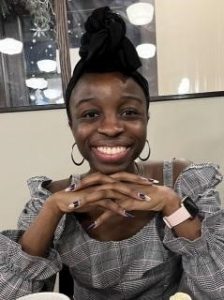
Photo courtesy of Coralie Tcheune via UBC Engineering
Coralie’s passion for engineering has taken her across the world and back. Last summer, Coralie secured the opportunity to spend the season as a product engineering intern in Paris as part of her Cansbridge Fellowship. There, she worked extensively with sensors and embedded systems while learning how start-ups operate in a different continent. Upon her return to Vancouver in the fall, Coralie co-led the recruitment, selection, and interviewing team for the 2023 Cansbridge Fellowship cohort. This role fulfilled her lifelong mission to bring more diversity and representation to the STEM fields; here, she reworked the Cansbridge advertising strategy to boost the number of Black and Indigenous applicants as well as the proportion of applicants from smaller universities.
Outside of her studies, Coralie is also running at full speed. As a personal project, Coralie has created a website to uplift the successes of racial minorities in STEM. Her goal is to create a database of historical figures, scholarships, social groups, and mentors that racial minorities in STEM in Canada can access. The site is currently in its prototyping phase, but she is looking to scale it up. (Translation: she’s looking for like-minded collaborators who believe in celebrating the voices and achievements that have been relegated to the back seat until now!)
To flex her design prowess further and apply her technical knowledge to design projects, Coralie leads the ENABLE (a UBC BEST subteam) as an elected co-captain. UBC BEST’s mission is to improve lives around the world by solving our “unsolvable” medical challenges. UBC BEST recently ran a two Make-a-thon events where over 60 of their members banded together to adapt toys for children with physical disabilities and limitations. With the support of the Makers Making Change organization, Coralie and her team adapted over 20 toys so that their recipients can play like kids again.
Coralie’s future is full of promise and creative challenges as well. This summer, Coralie will be working in the Molecular Mechatronics Lab with Dr. John Madden to develop a soft force sensor on a device for a humanoid robot hand.
And, true to her character, Coralie still dreams of transforming science fiction into a reality. What started off as a fascination with Doc Brown’s inventions has turned into a chase for innovation that knows no bounds. If she could stretch the limits of what is currently possible, Coralie would bring the technology from the movie The Black Panther into our world.
We can’t wait to see how Coralie will transform the world of healthcare with her ambition and creativity.
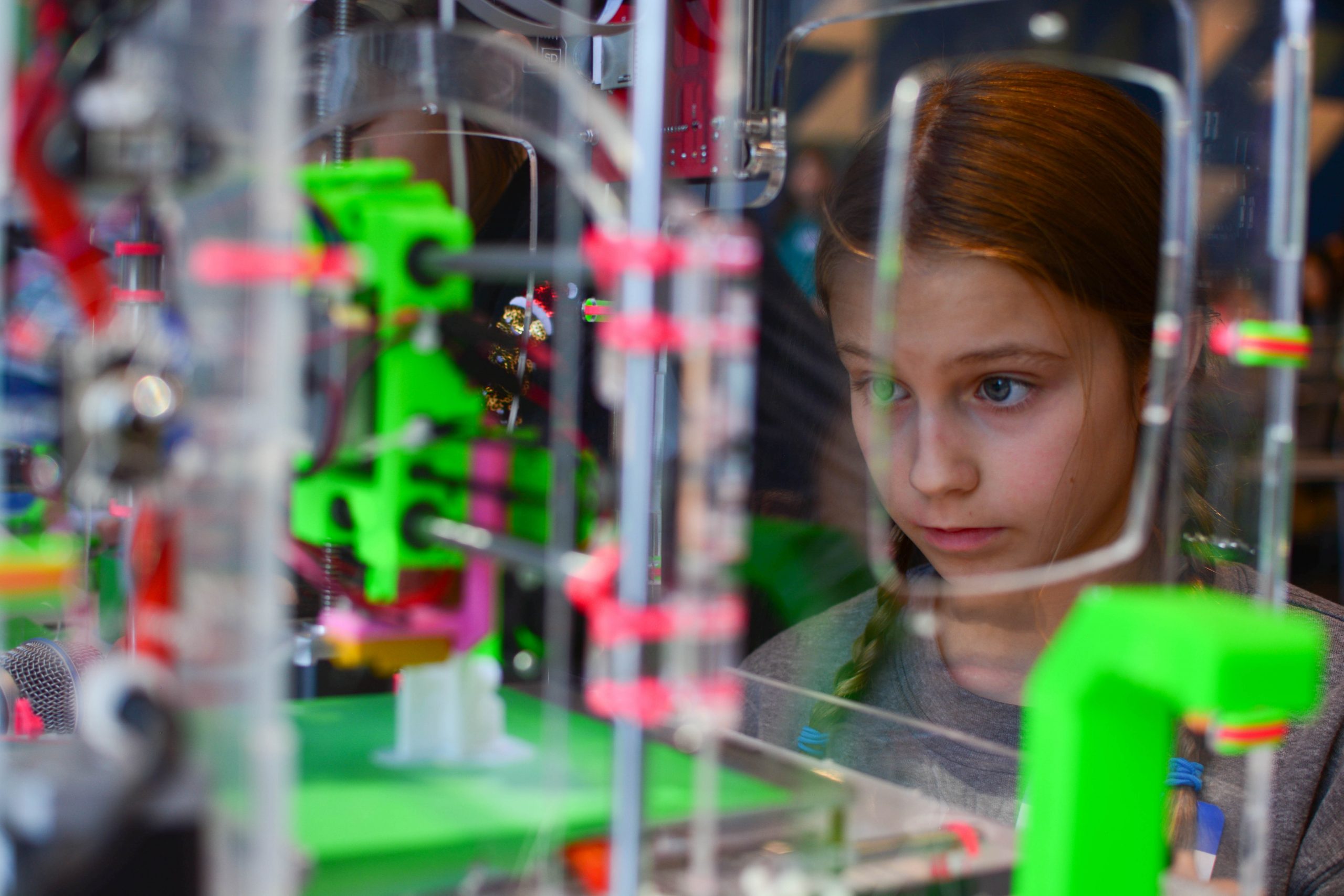
Join us and follow along as we GEER UP to inspire the next generations of scientists, engineers, critical thinkers, and leaders.


